A new network involving community organisations, law enforcement agencies, and expert academics is fostering cooperation and knowledge exchange regarding the challenges of refugees and asylum seekers’ integration into host societies. This network is promoted by a European partnership aiming to prevent radicalisation by improving this integration process.
As Europe continues to grapple with an ongoing influx of refugees due to crises created by climate change and conflicts such as the one in Ukraine, the need for a comprehensive approach to refugee integration has become increasingly evident.
Beyond meeting their immediate needs, it is essential to identify and address the risk factors that could lead refugees and asylum seekers to radicalisation. Failure to ensure their integration may foster frustration and complaints, negatively impacting host societies.
Growing a dedicated community
The IN2PREV project is committed to creating a supportive network that is attentive to the particular challenges faced during the integration process and encourages collaboration among various stakeholders, including law enforcement agencies and community organisations.
The online hub for the IN2PREV Frontline Practitioners Network is already online and fostering collaborative efforts dedicated to refugee integration and the prevention of radicalisation.
The network currently brings together over 100 dedicated members representing 21 countries and more than 40 organisations. These participants encompass law enforcement agencies, non-governmental organisations, research institutions, and government representatives, ensuring a comprehensive and holistic approach to the project’s objectives.
Building upon the collective expertise of the network, a collection of 107 resources is available on the platform, providing a wealth of knowledge and insights to guide practitioners and stakeholders in their efforts.
Professionals working in the field are invited to join the Frontline Practitioners Network by registering on the platform.
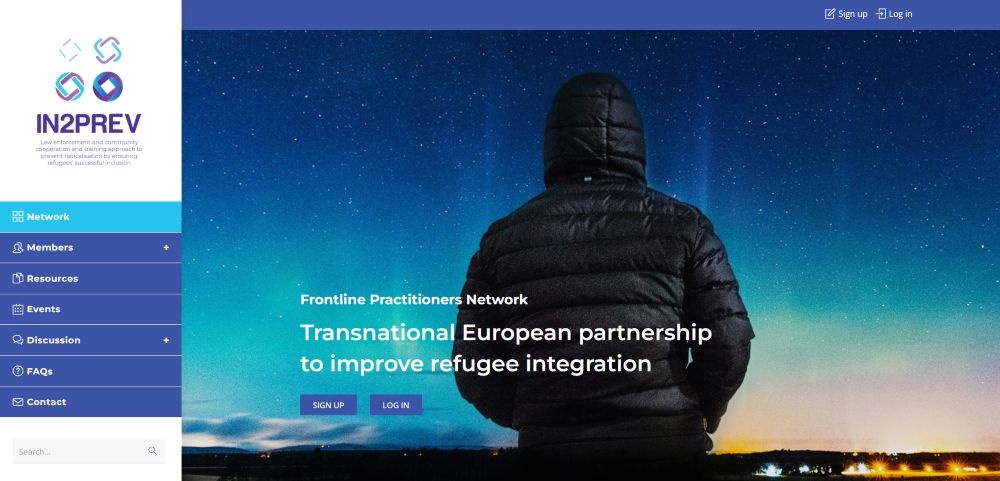
An ongoing effort to generate and share knowledge
These significant strides towards achieving the project’s objectives were part of the discussion in the Consortium’s 2nd Steering Committee Meeting, held on the 15th and 16th of May 2023. This gathering brought together the partnership experts to evaluate the current progress and the future trajectory of IN2PREV.
Among the results on the table was the project’s first survey, aimed at mapping current procedures to screen refugees’ vulnerability to engage in a radical or extremist viewpoint. The survey successfully collected responses from 18 European countries, which – combined with interviews that are taking place – will be foundational for the project’s proposed effort of creating a Frontline Extremism Vulnerability Risk tool. This assessment tool will allow law enforcement agencies and NGO staff to assess refugees’ vulnerability to radicalisation.
Looking ahead, the IN2PREV project is committed to nurturing the network’s growth and increasing its impact. Dissemination efforts will be intensified, enabling a broader reach and greater awareness of the project’s goals and initiatives.
Among the upcoming activities is another survey aimed at mapping the current protective and cooperative mechanisms utilised by frontline practitioners, including law enforcement agencies and non-governmental organisations working with refugees and asylum seekers.
The first Network panel thematic debate is also on the agenda. This interactive event will provide a platform for robust discussions, knowledge-sharing, and collaborative problem-solving, further strengthening the Frontline Practitioners Network’s effectiveness in achieving its objectives.
Know more about this project

IN2PREV
Law enforcement and community cooperation and training approach to prevent radicalisation by ensuring refugees’ successful inclusion
The IN2PREV project Consortium is coordinated by BSAFE LAB – University of Beira Interior (Portugal) and partnered by IPS_Innovative Prison Systems (Portugal), the Polish Platform for Homeland Security (Poland), the Euro-Arab Foundation for Higher Studies (Spain), the European Association for Social Innovation (Romania), the Academy of Police Force in Bratislava (Slovakia), the Center for Security Studies (Bosnia and Herzegovina), the General Police Inspectorate of the Ministry of Internal Affairs (Moldova), and the Bureau of Migration and Asylum (Moldova).
For more information on the IN2PREV project, please visit its page.
Related projects

MIRAD
Multi-Ideological Radicalisation Assessment towards Disengagement
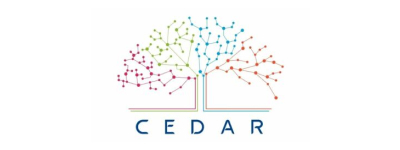
CEDAR
Continuing Education Against Radicalisation

INTEGRA
Integrated Community, Probation and Prison Services Radicalisation Prevention Approach

EUTEx
Developing a European framework for disengagement and reintegration of extremist offenders and radicalised individuals in prison
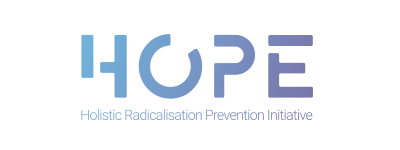
HOPE
Holistic Radicalisation Prevention Initiative (Balkan countries)
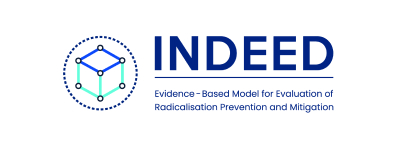
INDEED
Strengthening a comprehensive approach to preventing and counteracting radicalisation based on a universal evidence-based model for evaluation of radicalisation prevention and mitigation
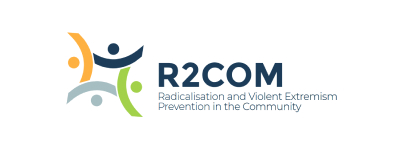
R2COM
Radicalisation and violent extremism prevention in the community

REFUGIN
Communitarian approach for a holistic young refugee long-term integration

PARTES
Participatory Approaches to Protecting Places of Worship

SafeBorders
Strengthening Judicial expertise and Frontline support to combat Child Trafficking
Related news
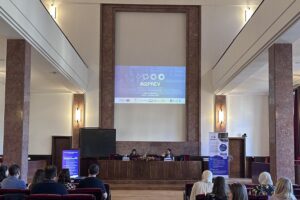
IN2PREV Final Conference highlights cross-sector collaboration for refugee inclusion and radicalisation prevention
Read More »
Standing united against hate: A national effort to prevent and tackle hate crime and hate speech in Portugal
Read More »
New IPS-led initiative unites efforts to protect religious communities, schools, and places of worship
Read More »
IPS contributes to shaping EU’s future agenda on radicalisation prevention at Brussels Town Hall meeting
Read More »



